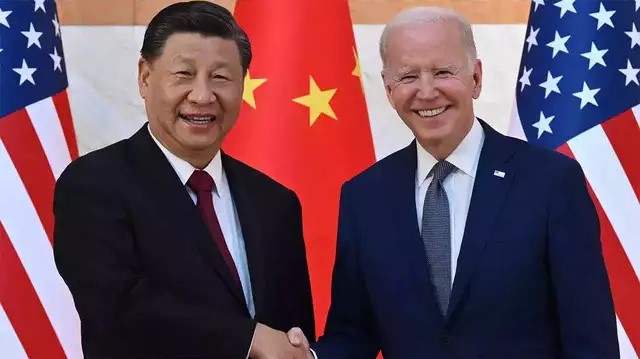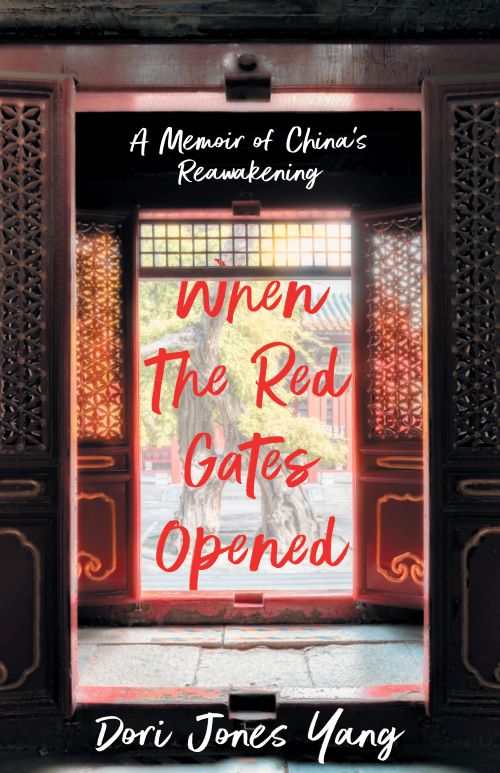Did you hear that huge sigh of relief after US President Joe Biden met with Chinese President Xi Jinping on Nov. 16 near San Francisco? Like many others in China and the US, I felt encouraged that both leaders have toned down the belligerence and animosity that have soured US-China relations for five years. As Xi Jinping said: “The world needs China and the United States to work together for a better future.”
Key Takeaways from the Summit:
- When the leaders of the world’s two largest economies speak in measured, reasonable tones – with no strident “wolf warrior” digs by China and no scolding condescension from the US – the world becomes a safer place. Bellicose language and threats can escalate to serious danger.
- Mutual respect – which should be central to diplomacy – has returned to the fore. We all do better when China and the US have responsible global leaders.
- The agreement between the two countries to restore military-to-military communications – both at the top and between theater commanders off China’s coast – should help defuse tensions and resolve any accidental collisions in the sea or the air. Major powers need to be in touch with each other. Let’s hope this helps.
Americans interested in knowing “What the heck does China really want?” can find answers – and perhaps deeper perspectives – in the Nov. 15 speech Xi Jinping made to American business leaders in San Francisco. Some insights you may have missed:
- What does China really want? Xi answered this question: “mutual respect, peaceful coexistence and win-win cooperation.” Xi posed the rhetorical question: “Are we adversaries or partners?” and responded: “China is ready to be a partner and friend of the United States.”
- Xi called China “the largest developing country” and the US “the largest developed country.” Many Americans don’t realize that China’s per capita GDP is only $12,541 – only one-fifth of the US level of $64,187. As advanced as China is becoming in semiconductors, artificial intelligence, supercomputers, and space travel, China is still a middle-income country. It has a long way to go before its economy is as developed as ours. Xi said his top goal is to eliminate poverty and to realize common prosperity for all Chinese.
- Wait! But isn’t China a military threat, eager to displace the US as the world’s superpower? Xi’s response: “It is wrong to view China, which is committed to peaceful development, as a threat and thus play a zero-sum game against it. China never bets against the United States, and never interferes in its internal affairs. China has no intention to challenge the United States or to unseat it.”
- But Beijing is aggressive and expansionist, right? That’s what we have been told. Xi’s response: “Aggression and expansion are not in our genes. The Chinese people have bitter and deep memories of the turmoils and sufferings inflicted upon them in modern times. … What the Chinese people oppose is war, what they want is stability, and what they hope for is enduring world peace.” China cannot achieve its development goals “without a peaceful and stable international environment.”
- But China is just like Russia, right? Ready to invade neighboring countries? Xi’s comment: “Since the founding of the People’s Republic, China has not provoked a conflict or war, or occupied a single inch of foreign land.” The clashes with India are over disputed territory and have involved knives and fists, not guns. Hong Kong, Taiwan, Tibet and Xinjiang belonged to China for hundreds of years. China has not fought a war in 44 years.
- Of course, Beijing wants to overtake the US as the next superpower, projecting its military power around the world, right? Xi’s response: “China will never pursue hegemony or expansion, and will never impose its will on others. China does not seek spheres of influence, and will not fight a cold war or a hot war with anyone. China will remain committed to dialogue and oppose confrontation, and build partnerships instead of alliances.”
Maybe Xi Jinping is not to be trusted. Our military can’t just take him at his word; we need to be prepared. But before we pre-judge Beijing and assume Xi’s goals are the same as ours – or as Putin’s – we should look at China’s history and at Xi Jinping’s own stated goals. Will he live up to the words he spoke in San Francisco?
The world is watching.




Competition creates winners and loseres. Collaboration allows all to win a better world.
I couldn’t agree more
OTOH
听其言而观其行
and that goes both ways
since US mantra is ‘de-risk, not de-couple’
and China responds… ‘but look at what you’re doing!’
all of the careful, deliberate diplomatic work in the lead-up to APEC paid off
China cares about optics, and US delivered
Biden needed some wins and he got them
win-win!
Hi Dori:
It is good to see your writing. I suggest that China critics should keep a score card to record how many times that China has broken the promises as Xi stated in his comments regarding the goals and objectives of China.
H. F.
It looks like how Chinese and Westerners see religion. In Western world, religion mostly means monotheism, there’s only one God and all the other religions are “paganism”, while Chinese never seen this as a serious problem. Communism or Capitalism is not a important, Chinese are always pragmatist. We only care about money, health, and stability. Look, we even have gods of money and long-live, but never have any god of war, right? The gods of Taoism and Buddhism always invite each other to enjoy party together, that’s what we Chinese see and hope to the world.
Dori, You’ve written a wonderful summary of every important aspects of what Xi stand for. But the breakdown in the bilateral relations since the last summit in Bali was not initiated by Xi but because the Biden team renege on every promise. Can you provide an equally insightful summary of what Biden stands for now that would presage embarking on the road to improved bi-lateral relations? It takes two parties to tango for better or for worse.